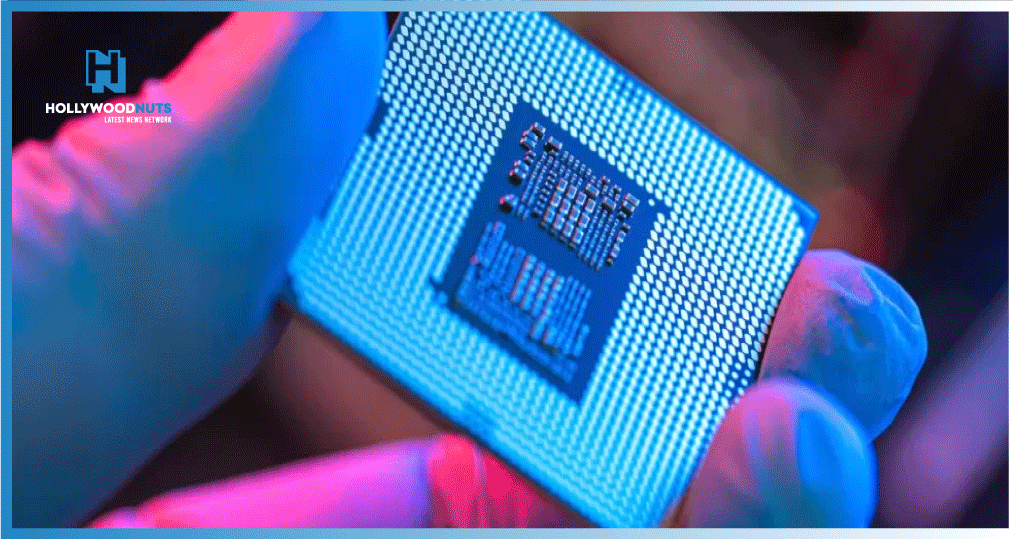How the technology issue is developing in the US-China chip battle
The US is stepping up its efforts to slow down China’s development in the semiconductor sector, which is essential for everything from smartphones to military equipment.
Washington enacted some of the broadest export regulations ever Ratifying October, mandating licenses for firms sending chips to China created with US equipment or software, regardless of where in the globe they were produced.
Washington’s regulations also forbid US nationals and people with green cards from working for specific Chinese semiconductor manufacturers. Permanent residents of the US with a green card are permitted to work there.
It is severing a vital conduit for American talent to travel to China, which will have an impact on the advancement of high-end semiconductors.
Why is the US acting in this way?
Supercomputers, artificial intelligence, and military gear are all powered by cutting-edge electronics.
According to the US, China’s use of the technology endangers its own national security.
The guidelines were issued by US Commerce Department Undersecretary Alan Estevez, who stated that his goal was to make sure the US was doing everything it could to stop China from acquiring “critical technologies with military applications.”
We are upgrading our policies today to ensure that we are addressing the problems because the threat landscape is constantly changing, he said.
China, however, has referred to the restrictions as “technology terrorism.”
Taiwan, Singapore, and South Korea, three chip-producing nations in Asia, have expressed concern about how this fierce conflict is harming the global supply chain.
And over the previous week, the chip war saw three important developments.
On the “entity list,” more Chinese businesses
The “entity list” in Washington now includes 36 additional Chinese businesses, including the largest chipmaker YMTC.
It implies that American businesses will want government approval to sell them certain technologies, and that approval is challenging to obtain.
The US prohibitions have wide-ranging effects. Last week, UK-based computer chip company Arm acknowledged that US and UK constraints prevented it from selling its most cutting-edge designs to Chinese companies, including digital behemoth Alibaba.
Arm declared in a statement that it was “committed to complying with all applicable export laws and regulations in the areas in which it operates.”
China files a WTO complaint
At the World Trade Organization (WTO), China has lodged a protest against the US for its export restrictions on semiconductors and other related technology.
Since President Joe Biden took office in January 2021, this is the first WTO dispute Beijing has filed against the United States.
China claimed in its WTO application that the US was exploiting export restrictions to uphold “its leadership in the research, technology, engineering, and manufacturing sectors.”
Additionally, the “stability of the global industrial supply networks” was jeopardised by US activities.
In response, the US stated that the trade organisation was “not the appropriate forum” to resolve issues pertaining to national security.
“US national security interests necessitate that we act decisively to prevent access to advanced technologies,” said Thea Kendler, Assistant Secretary of Commerce for Export Administration.
The WTO claims that Trump’s steel tariffs violated trade laws.
Why is there a lack of chips?
According to the complaint, the US has restricted the shipment of over 2,800 Chinese products, although only 1,800 of them were permitted by international trade laws.
The US has 60 days to attempt to fix the issue. Otherwise, China will be able to ask for a panel to look into its case.
The WTO determined earlier this month that US tariffs on steel and aluminium enacted by the US under former President Donald Trump were unlawful.
Tariffs apply to two thirds of the products that China exports to the US.
The US stated that it “strongly condemns” the decision and will not be eliminating the sanctions.
Discussions with the Netherlands and Japan
Japan and the Netherlands might impose export restrictions on China, which would restrict their ability to sell cutting-edge products to the Chinese market.
Jake Sullivan, the national security adviser for the White House, said on Monday that the US had talked about implementing comparable US constraints on Beijing with the two primary suppliers of chip manufacturing equipment.
Mr. Sullivan told reporters, “I’m not going to go ahead of any announcements.” We are really happy with the openness, the depth, and the intensity of the talks, I’ll just say that.
2019 media caption: How the lack of semiconductors may affect you
The US restrictions target more than just chipmakers. They have an impact on chip fabrication equipment producers as well.
Huge and profitable customers for their high-end machines could be lost by large enterprises in Japan or the Netherlands.
Dutch chip equipment manufacturer ASML Holding NV CEO Peter Wennink questioned whether shipments to China should be restricted.
According to Mr. Wennink, the Dutch government has already prohibited ASML from exporting its most cutting-edge lithography machines to China as of 2019. This action was taken in reaction to US pressure.
He told Dutch media, “Maybe [the US thinks] we should come to the table, but ASML has already made a sacrifice.
What is coming up
In order to support new goods, chipmakers are also under pressure to provide increasingly sophisticated chips.
For instance, processors measuring 3 nanometers will be found in Apple’s new laptop from the leading manufacturer in the sector, Taiwan Semiconductor Manufacturing Company. In order to put that into perspective, a human hair is between 50,000 and 100,000 nanometers long.
Analysts claim that US restrictions could further isolate China from other chip-producing nations, despite Beijing’s clear declaration that it intends to prioritise the production of semiconductors and establish itself as a superpower in the industry.
Even if the most recent actions are not as extensive as those announced in October, the US has already considerably isolated China’s chip industry.

